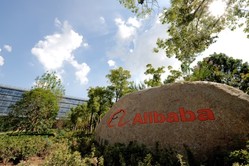 Kering Group, the French luxury fashion house, has drawn first blood against ecommerce giant Alibaba in a suit which accuses the Chinese etailer of facilitating sales of counterfeit goods by its vendors.
Kering Group, the French luxury fashion house, has drawn first blood against ecommerce giant Alibaba in a suit which accuses the Chinese etailer of facilitating sales of counterfeit goods by its vendors.
On August 12, a US District Judge in Manhattan granted Kering's Gucci America brand an immediate order barring sales of goods on Alibaba by numerous vendors who sell through Alibaba's network of web stores.
Kering – whose brands include Balenciaga, Gucci, Yves Saint Laurent, Brioni, Alexander McQueen, and many others – filed a trademark infringement suit against Alibaba on May 13.
In one instance, an Alibaba vendor advertised a fake Gucci bag for $2, when the authentic bag would cost $795.
Saying it was likely that the ongoing suit would prove that the barred vendors were selling counterfeits, Judge P. Kevin Castel also instructed the vendors to turn financial records over to Kering. The injunction, unlike the larger trade infringement suit, will not directly affect Alibaba.
Vendors named in the order include Brand Bag Boutique, Yun Mi's Store, Kou Kou Dai (Buckle and Pocket), Europe and E News, Picasso Trend, Lehui Textile Behalf and Amy Luxury Goods, among others.
As we reported in May, Kering's current suit marks the second time in two years that Kering has taken Alibaba to court. A July, 2014 suit was withdrawn by Kering after the two companies announced they would attempt to work together to solve the counterfeiting issues. Alibaba has recently worked successfully in this area with Nike, Burberry and others.
Alibaba has a Infringement Claims system in place to which companies can take complaints of counterfeiting. It employs a small army of 2,000 employees to work on the issue.
But the joint initiative fell through. According to the well-regarded law website Lexology, the efforts of the China-based internet behemoth are seen by many as far too little and too late: "…brand owners feel that Alibaba's policy does not extend far enough and is far behind the pace of infringers."
Kering's next step in the case is to prove that the goods in question are truly counterfeit.
For luxury houses the stakes in online commerce have become very high. After lagging by a decade or more behind other industry sectors, the luxury houses are now pouring resource and credibility into their presence on the web.
Only in 2012 did Kering create a joint venture with the Yoox Group to build websites for some of its top brands. Yoox itself combined this year with erstwhile competitor Net-a-Porter to form a luxury platform with sales of $1.5bn. Chanel created its first online store this spring.
"We expect an entirely new luxury world by 2020," Marco Pozzi of ContactLab, a digital market research firm, told the New York Times.
In this new world, the brands clearly have little tolerance for online fakes, which dilute their hard-won reputations.
The case, Gucci America, Inc. et al v. Alibaba Group Holding Ltd.et al ( 15-cv-03784) is being hear in the US District Court, Southern District of New York (Manhattan).
©
SecuringIndustry.com




 Kering Group, the French luxury fashion house, has drawn first blood against ecommerce giant Alibaba in a suit which accuses the Chinese etailer of facilitating sales of counterfeit goods by its vendors.
Kering Group, the French luxury fashion house, has drawn first blood against ecommerce giant Alibaba in a suit which accuses the Chinese etailer of facilitating sales of counterfeit goods by its vendors. 